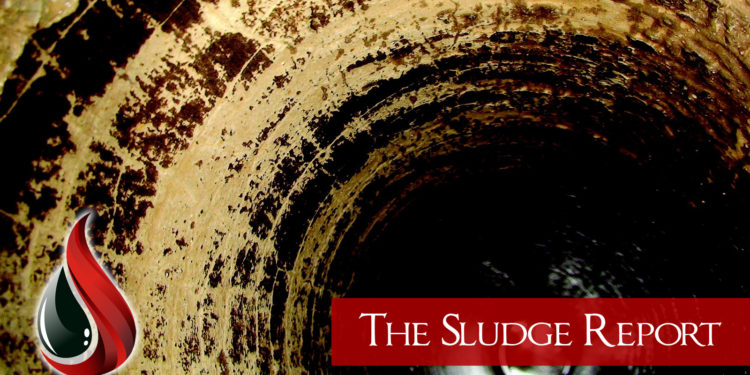
What is sludge?
Oil tanks are not air tight. Every tank has a vent pipe to prevent over-pressurization when the tank is filled. When oil goes in, air comes out, and vice versa. Sludge is the result of water vapor in the air condensing inside of the tank upon changes in temperature. The water vapor pools into droplets on the tank’s interior, causing it to rust over time. Eventually, rust particles and water make their way to the bottom of the tank (water is heavier than oil). It is the interface of oil and water that forms a habitable environment for microbes. These microbes, in turn, feed off of the oil, causing it to break down and forming the thick sediment we refer to as “sludge”.
How do we prevent it?
Sludge does not represent a defective home heating system. In varying degrees, sludge inevitably builds up in all home heating oil tanks. Think of it as part of the oil tank’s ecosystem. There is even built-in infrastructure meant to deal with the gooey substance. For example, the pick-up lines that deliver oil from the tank to the burner often collect oil from several inches above the tank’s bottom, where sludge resides. Furthermore, the oil passes through a filter as it exits the tank.
In addition to those few intrinsic oil purification measures, there are other ways to make sure sludge does not interfere with the efficiency of your home’s heating system.
-
Refill oil tanks before they bottom out. Perhaps the most common scenario in which sludge gets sucked into burner supply lines is when there is so little oil in a tank that the proportion of sludge to oil is high.
-
Arrange for yearly maintenance from your service provider. This should include the replacement of oil filters.
-
Use a Premium Oil. Burning with premium oils, such as HeatForce, will help to clean your system naturally.
-
Keep tanks full in the offseason. The more oil that is in the tank, the less room there is for air and water vapor.
-
Use sludge emulsifiers. Oil providers will sometimes add these to their oil before dispatching it. If not, emulsifiers can be purchased at hardware stores and work by chemically decomposing sludge into particles and dispersing it throughout the oil reservoir.
-
Use a reputable oil company. Discount oil companies offer discounts because their oil is less refined and contains more contaminants than more reputable providers. While cheaper, it adds more stress to a heating system and can be costly in the long run.
You may also want to read: Why Should I Clean My Burner?
Author: Brian Seibolt
